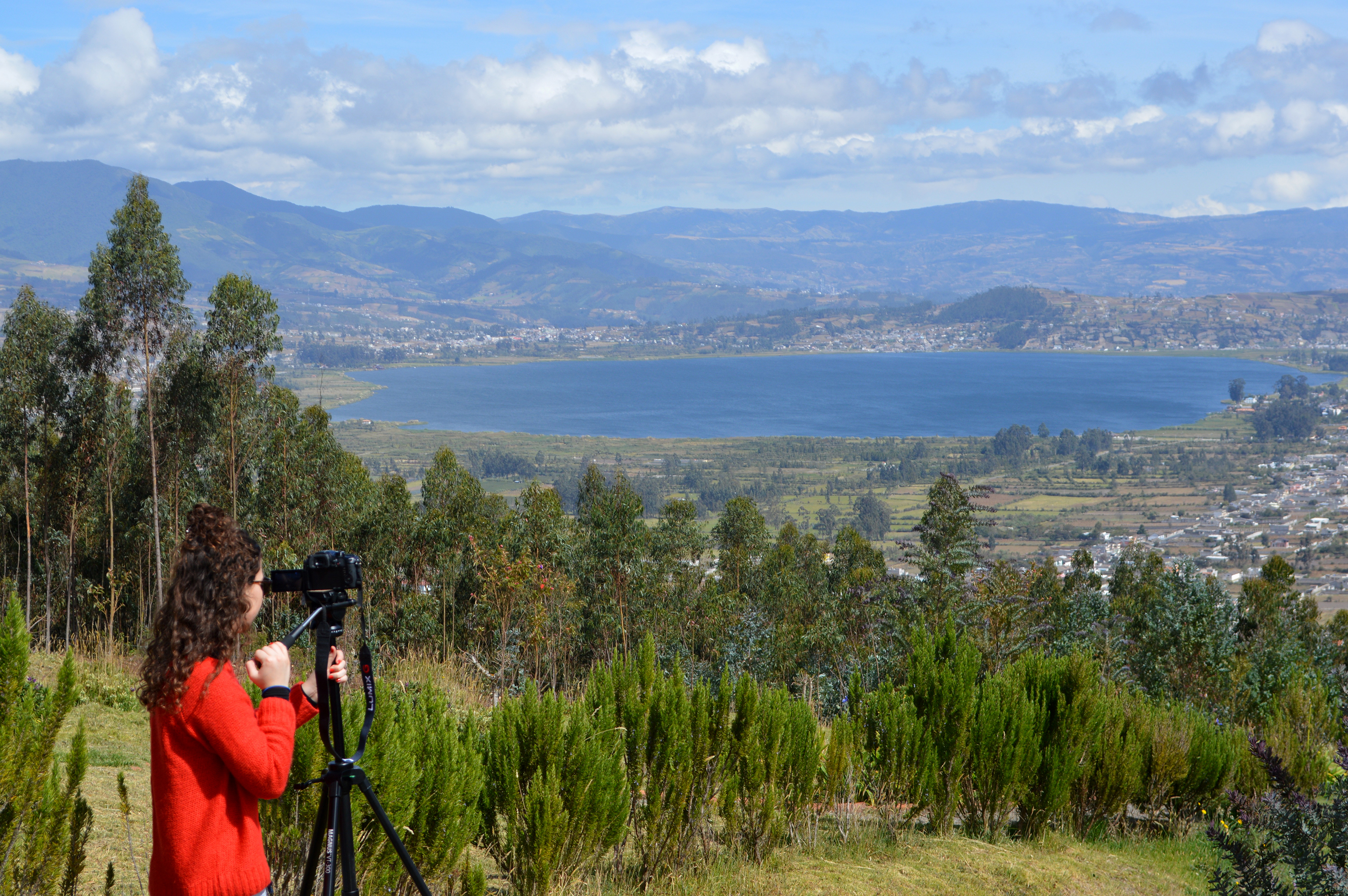
Paula Ortiz ’18 is taking a shot this summer at an endeavor many professional filmmakers never undertake, let alone rising undergraduate sophomores: crafting a documentary. Ortiz is pursuing this project, titled Textile Patterns and Social Structure: Recapturing the Artistic, Historic and Cultural Legacy of Otavalo, with funding from an Emerson Summer Collaborative Research Award and Visiting Professor of Art History Scott MacDonald as her advisor.
Ortiz’s documentary will, in her own words, “be focusing on how the textiles produced by the indigenous in Otavalo serve as a medium to narrate and immortalize their historic, artistic and cultural legacy.” Otavalo is a city of roughly 90,000 situated in northern Ecuador, famous for the textile production of its indigenous population, as well as for its large local market. Ortiz claims that Otavalo’s status as one of the largest textile markets in South America has been crucial in providing its community with economic autonomy and preserving its unique cultural traditions and heritage.
“The idea came to me because I was interested in making a documentary that would allow a kind of narrative that is mostly cinematic,” explained Ortiz, though she says her selection of topic came down largely to a deep respect for the community of Otavalo. “The decision to focus on this particular community came from my ongoing admiration of the textiles and their cultural richness. I have been visiting this community since I was a kid and have always been amazed by the hospitality, generosity and good soul of these people.”
To prepare for this undertaking, Ortiz has been watching the work of various ethnographic and personal documentary filmmaker and reading histories of the indigenous settlements in the Andean region of Ecuador and the development of its textile industry. In order to analyze and understand the patterns in the textiles she has been investigating the symbolism and main motifs that are found in the works of the indigenous Otavaleños.
Beyond simply informing an audience, however, Ortiz has a very specific set of goals with regard to her film’s intended impact. In addition to wanting to bring attention to the many ways in which cultures manifest their traditions, social structure and beliefs, she says she wants to “make the viewer realize, and possibly question, their consumption of textile products, their origins and history.” Through this internal realization that Ortiz hopes to generate in the audience, she aims to create a form of dialogue between cultures and further celebrate the existence and work of the people in Otavalo.
As an anticipated cinema and women’s studies double major, Ortiz says that this project has aligned perfectly with her academic interest and pursuits this last year at Hamilton, allowing her to take her knowledge of various genres in filmmaking and to put that knowledge into practice, “and make it about people who are important for my national identity.”
Ortiz’s work has led her not only toward discoveries surrounding filmmaking, but also to deeply personal realizations. “I am learning to see textiles as texts of cultures that are relevant to my national identity, and conveying my experiences and findings through a cinematic eye,” she said. But though the academic benefits may be great, to Ortiz, the satisfaction of interacting with elements of a culture and community for which she has passion has been most rewarding. “Perhaps one of the things that has impacted me the most” she concluded, “has been going out to explore new settings and reach out to people for them to share their stories and traditions with me.”
 Read more
Read more 